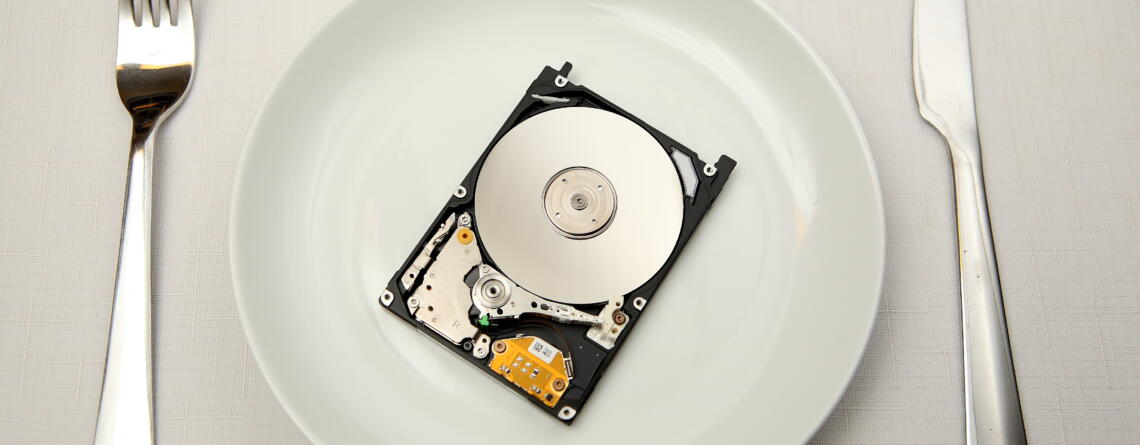The Consumer Hard Drive Debate
AKiATECH2016-05-05T00:34:24-04:00Over the course of working on and around computers, I’ve found that there is one thing that people always seem to be concerned about, and that’s hard drive performance/reliability. The hard drive is one of the most important components of a PC and can be best classified as a semi-permanent storage medium for all the data on your computer. With Hard Disk Drives now available on the market in sizes that are in excess of 10 Terabytes, I can see why someone would be concerned with drive performance and reliability. In this blog post, I’m going to provide a general overview of consumer grade Disk Drives and provide a few suggestions of drives I’ve personally used in my builds.
Types of Drives
The two main types of hard drives are the traditional Hard Disk Drive (HDD) and Solid State (SSD) Drive. Each type has its own benefits and disadvantages. Mechanical Hard Disk Drives are designed around proven technology that’s been around for a few decades while Solid State Drives are based on fairly new tech, so their reliability is still in question. SSD’s, however, are an order of magnitude faster than traditional drives, they are smaller, lighter and tend to run cooler due to the lack of moving parts. Recent price reductions have also propelled SSD’s to become a major player in the storage arena. The next category of hard drive is the one that we all know and love, the big chunky Mechanical HDD. Traditional Hard Drives are based on technology that has been around since the 1950’s so they’re reliability or lack thereof has been documented over the years. The problem is that devices with moving parts will eventually fail on their own, even without the added stress that disk drives are typically put through. The benefit of HDD’s is that due to the maturity of the tech used in the drives, we now have traditional Hard Drives on the market that can store data up to 10TB which is significantly more data than mainstream SSDs. I may have to rewrite this post soon though since Samsung has released an almost 16TB SSD, it’s an SAS drive, though, so unless you require an enterprise solution or have money to burn, you will probably be better off with an HDD.
Drive Reliability
Solid State Drives as mentioned earlier are fairly new technology. I guess the best way to describe an SSD is that it is the equivalent of a USB Flash Drive on steroids. They are based on similar technology which uses NAND Flash chips as the data storage medium. For all the benefits that there are to using SSD’s, there is one glaring disadvantage. Solid State Drives have a finite number of Program-Erase (P/E) cycles and can only be written to a limited amount of time. The limit is about 100,000 P/E cycles per 128KB block, although new technologies such as 3D NAND are increasing this limit. Hard Disk Drives are a proven technology and although slower, noisier, heavier and hotter than SSD’s they are still holding their own in the Storage Wars. HDD’s fall under the umbrella of Magnetic Storage due to the fact that data is stored on magnetized disks (platters) within the drive. The information stored on the platters is accessed by Read/Write heads that “hover” above and below the platters to access the data stored on the disk. The problem with Hard Disk Drives is that as a result of their mechanical design, they will eventually fail from the wear and tear on the moving parts inside the drive. Here’s a great article that explains how HDD’s work.
Summary
My approach for configuring the systems I build is to use an SSD for the “System” Drive and an HDD for the “Files” drive. This way the computer will boot and run faster due to the speed of the SSD while still having the additional storage space provided by the second drive. If you’re using a Laptop you can use a hybrid drive that contains both an SSD and HDD. These drives typically cost more than purchasing both drives separately but can literally give you the best of both worlds. A cloud storage provider known as Backblaze provides a pretty in-depth review of the reliability of the drives that they use in their data centers. Here’s a link to the most recent review. Below I’ve provided some of the disks and adapters that I’ve used in recent builds or when replacing damaged drives:
My Recommendations
Discover more from Akiatech Solutions Blog
Subscribe to get the latest posts sent to your email.
